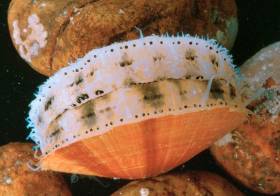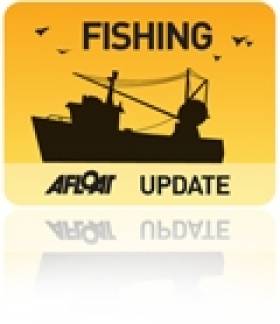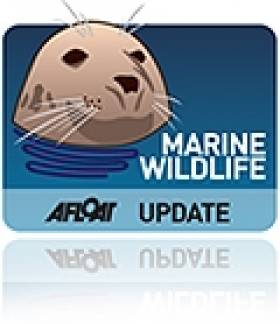Displaying items by tag: scallops
Marine Minister Confirms State Aid for Liquidity of Irish Scallop Fleet
Marine Minister Charlie McConalogue has announced a €560,000 support package for the Irish fishing fleet segment of 22-28m vessels that targets scallop in the Irish Sea, Celtic Sea and the English Channel.
Speaking on Friday (10 November), Minister McConalogue said: “I am pleased to announce that I have secured €560,000 State Aid approval for support for this segment of the Irish scallop fleet.
“The Specific Scallop Fleet Transition Support Scheme recognises that the EU-UK Trade and Cooperation Agreement (TCA), while directly impacting quota species, has also indirectly impacted non-quota species such as the scallop sector, which has been significantly affected by reductions in fishing time and logistical issues related to landed catch.”
Prior to Brexit, scallop caught in the English Channel were landed into the UK and shipped directly back to Ireland for processing. These processed scallops were then re-exported to other EU countries.
Post-Brexit, as a consequence of the TCA, these operators now face significant additional logistical and administrative burdens, with associated additional costs.
There are currently seven vessels of 22-28m that target scallop in the Irish Sea, Celtic Sea and the English Channel.
On average the days at sea fished by this fleet segment has reduced from 217 days in the period 2018-2020 to 142 days in 2021, a reduction of 34%.
This has resulted in reductions in average turnover of €227,000 (37%) across the fleet segment, with an averaged loss of 37.5% between trips now landed on the continent compared to previous trips which were being landed in the UK.
The minister added: “In that context I consider it appropriate to put in place a short-term liquidity aid scheme covering losses incurred by this segment during the 2021 scallop season due to reductions in fishing time, which have led to reduced turnover.”
The scheme will be open to owners of vessels in the specific scallop segment and aims to partially offset losses incurred by the sector due to the TCA during 2021 compared to 2018-2020.
To be eligible for funding, vessel owners/companies must have suffered a 30% or more reduction in turnover over in 2021 compared to the period 2018-2020 as a direct result of Brexit.
Payments will be based on the per days at sea lost in 2021 compared to the period 2018-2020, up to a maximum of 20 days or €80,000 per vessel.
Minister McConalogue said: “I am confident this support of up to €80,000 per eligible vessel will assist this segment of the Irish scallop fleet to consider all options to restructure and adapt to the issues created by Brexit in the scallop fishery.”
Scheme information, once launched, will be available on the BIM website.
Downing Street Moves To Defuse Tensions Over English Channel ‘Scallop Wars’
#Fishing - Authorities in France and the UK have stepped into the ‘scallop wars’ that broke out between rival fishing fleets in the English Channel near Le Havre last week.
As the Guardian reports, some 35 French boats chased away five British vessels off the Normandy coast in a standoff over restrictions on the region’s scallop fishery.
Between March and October, French boats are barred from fishing for scallops in the 40 miles of international waters off Normandy called the Baie de Seine.
Smaller British boats dredging for scallops in the same waters are under no such prohibition, which has raised the ire of their French counterparts who claim their stocks are being poached.
The French navy has already pledged to intervene in the event of any further clashes — prompting Downing Street to push for further talks between the two sides.
The Guardian has much more on the story HERE.
Pioneering Programme for Isle of Man Scallop Fishery
#FISHING - Conservationists and the fishing industry have joined forces in a new venture to evaulate the state of the Isle of Man's scallop fishery, as the Guardian reports.
Both sides will co-manage the 35-square-mile Ramsey marine nature reserve in the Irish Sea, collecting data to show what progress the scallops have made since fishing in the area was banned in 2009.
It is hoped that the study will lead to a renewing of leases for scallop fishing, which is worth up to £12 million annually to the Isle of Man's economy - though industry leaders have doubts that the new arrangement will serve the island's fishermen.
Some 2.6% of Manx waters are protected, with more than 1% 'highly protected', which is in stark contrast to the rest of the United Kingdom after plans for a national network of conservation zones were shelved till at least next year.
The Guardian has much more on the story HERE.
Work Begins to Eliminate Sea Squirts in North Wales
#MARINE WILDLIFE - Work on exterminating sea squirts at a marina in north Wales has begun.
The £250,000 (€301,000) project by the Countryside Council for Wales involves attaching giant bags to the subsurface structures around the marina in Holyhead, which is hoped will stop the clean flow of water to the sea squirts, causing them to suffocate and die.
Marine biologist Rohan Holt, who is managing the project, said: “If we successfully eradicate the sea squirt, we will work hard to make sure that it does not recolonise.
"This will mean careful monitoring in Holyhead marina and other marinas and popular mooring areas throughout Wales to check that it hasn’t reappeared."
The sea creature threatens shellfish by spreading like a blanket across the seabed and other surfaces.
As previously reported on Afloat.ie, colonies of the invasive Japanese sea squirt are posing a throat to mussel and scallop bed in the Menai Strait between Anglesey and the mainland.
Boats from Ireland have been blamed for carrying the invasive pest into Holyhead.
The Daily Post has more on the story HERE.


























































